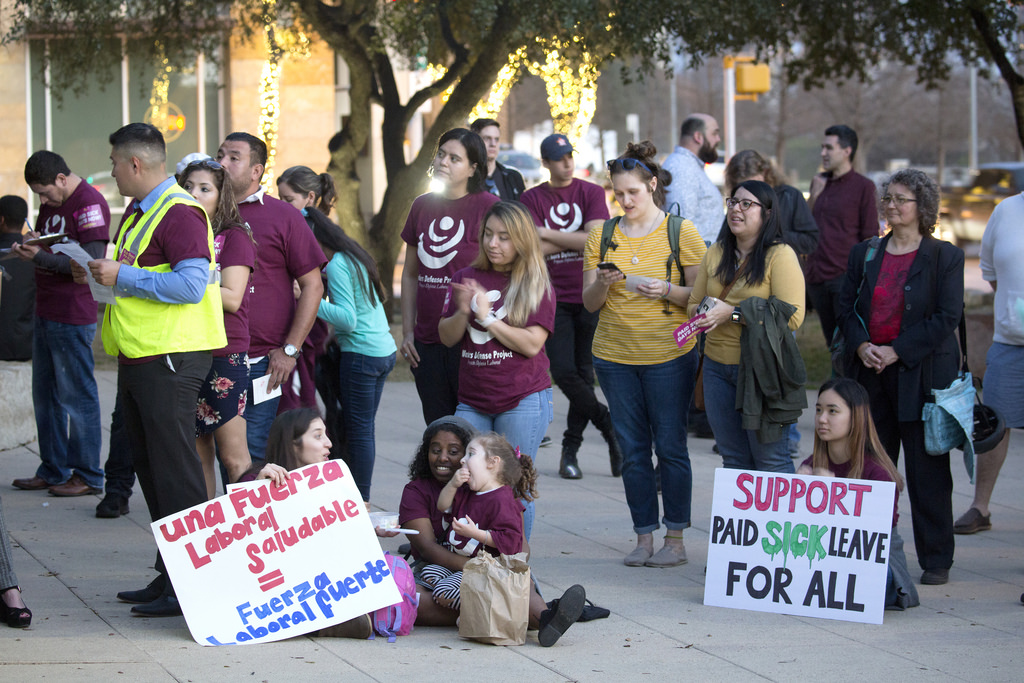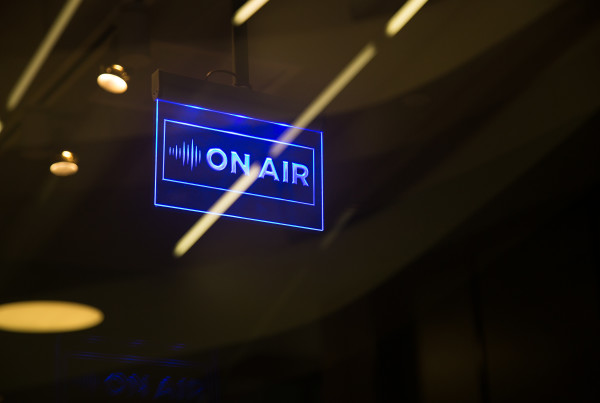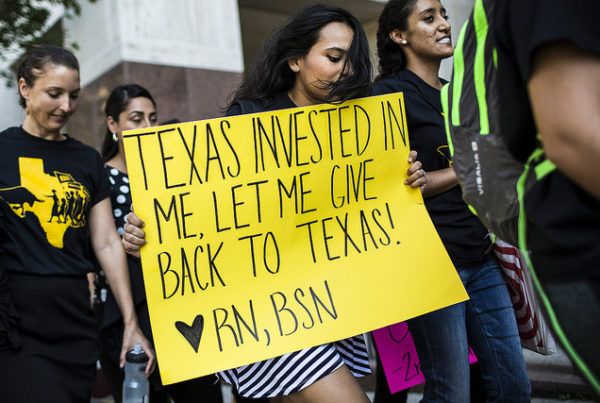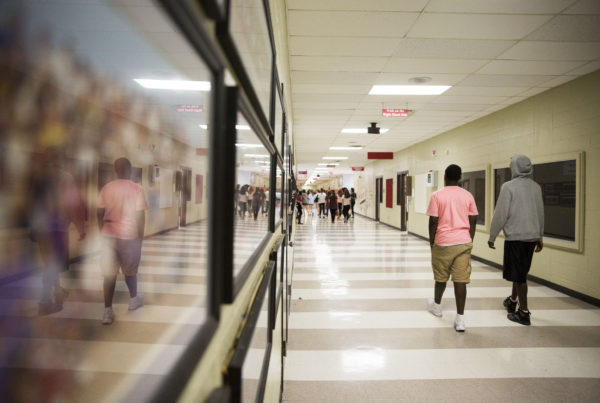There’s some surprising news about the state of labor in Texas: the Lone Star State has been a right-to-work state since 1947, but it appears that unions in Texas are having a moment. Membership numbers are up, and it could be a turning point for organized labor, even in pro-business Texas.
Mitchell Schnurman, business columnist for the Dallas Morning News, says there was an uptick in union membership starting in 2017, and it’s been growing ever since.
“In 2017, we added 81,000 union members,” Schnurman says. “What I think is more revealing is that the share of workers who are members of unions went up from 4 percent to 4.7 percent.”
That’s small compared to the national average – and compared to more heavily unionized states like New York, where the rate is 24 percent. But Schnurman says there’s still a noticeable trend in favor of unions, and it’s happening regionally and in certain industries.
“Almost 800 catering employees for United Airlines are trying to form a union…[and] Houston is one of the big centers of it,” Schnurman says. “In San Antonio, a couple of Hyatt hotels in the past few years have adopted a union contract.”
But unions are also involved in driving policy issues like paid sick time. Schnurman says they’re mobilizing around this issue particularly in Austin and San Antonio, and to a lesser degree in Dallas.
But the growth of unions in Texas is only a symptom of a larger national trend. Schnurman says the teacher-union strikes, which took place in states like West Virginia, Oklahoma and Arizona, have been very successful.
“Not only did they turn out results…with better contracts and some improved working conditions, [they’ve] actually led to a whole lot of teachers who are running for public office,” Schnurman says.
But he says Missouri is the most important recent example of the growth of unions. Last year, its Republican legislature passed a right-to-work law, which exempted workers in union jobs from being required to join the union – but unions protested. The state held a referendum on the issue in August and Schnurman says two thirds of voters rejected the law.
“That was an overwhelming show of support,” Schnurman says.
He says recent polling by the Pew Research Center found that a majority of Americans view the decline in unions as a negative thing. That sentiment was especially strong among younger people.
“I think you’re starting to see some backlash to what we’ve seen with the stagnating wages and the real decline with things like health benefits,” Schnurman says.
Written by Caroline Covington.
















